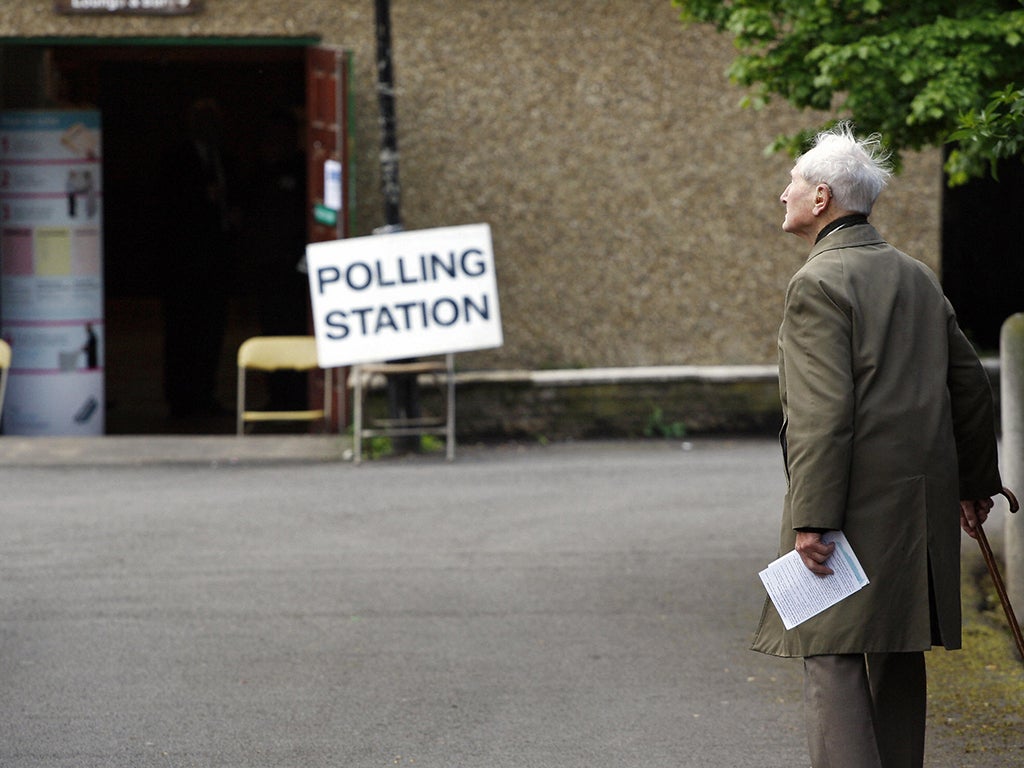It’s about time the elderly were prevented from voting
If Labour refuse to give the vote to under-18s – despite having made it an election pledge – they should instead take it away from the over-80s, argues Tristan Clark Lam


As schoolchildren start mentally preparing to go back to the classroom, many will look back on a summer holiday spent earning money to help put themselves through university. The prime minister has previously indicated that he was keen to lower the voting age to 16 – no taxation without representation, and all that – but that was before the wider public decided it was unconvinced by the prospect.
A recent University of Exeter study suggests that Labour’s plan to lower the voting age to 16 is strongly supported by only one in 10 voters, and strongly opposed by more than a third.
The proposal to lower the voting age was notably left unsaid in Keir Starmer’s first King’s Speech, despite his party having made it a manifesto pledge. Many would have sighed – but for 17-year-old me, it was a sigh of relief.
Not only does enfranchising non-adults undermine the significance of suffrage, but it is also logically incoherent with legal principle. Starmer seems to trust me to determine the government of the United Kingdom when I can’t buy a drink, get married, or, God forbid, purchase a handheld sparkler.
At 18, I can do all those things and more, not least run for election myself. And, for the most part, it is right that I cannot at 16. Voting should not be a steadily encroaching, age-irrelevant right, but an active adult duty. But while many 16-year-olds are too immature, surely there should also be an age cap on older people’s reliability?
It is this perceived cap that pushed 81-year-old Joe Biden to give up fighting for another four years in office, despite believing that his “record as president, [his] leadership in the world, [his] vision for America’s future, all merited a second term”, as he stated last month when he withdrew from the White House race.
Having tilted at reform of the House of Lords in his King’s Speech, Starmer is reported to be looking to eject 80-year-old peers. If the prime minister does not trust elderly lawmakers to vote on legislation, he cannot justify the most elderly voters taking part in elections.
Time and time again, the young have had their futures marred by an electorate that does not have their interests at heart. I remember sitting at the kitchen table on the morning of 24 June 2016, watching the Brexit referendum results on my mum’s iPad. Even at the age of nine, my friends and I recognised the unmistakeable feeling of betrayal. It was the 3.2 million, significantly Leave-leaning over-80s who had tipped the scales towards Brexit. My opportunities in Europe had been squandered by many who would not even live to see the consequences of their actions.
Last month, The Independent reported that 1.4 million Tory voters will have died by 2029 – 17 per cent of the Conservatives’ vote share. The party’s mandate as the official opposition to Labour is propped up by voters who will not experience a full term of Conservative opposition.
In a country where life expectancy exceeds 80 (for women, at least), the potential scale of cognitive decline is a problem not faced by any previous generation. For progressive, mandated government, we cannot sleepwalk into a gerontocracy. To prevent the “tyranny of the elderly”, Starmer needs to be bolder: to forget enfranchising us kids, and instead ban over-80s from voting.
As controversial as it may sound, the measure would balance the scales. The principle is not to punish the elderly, but to create a voting demographic that accurately reflects those who will face the long-term outcomes of today’s political decisions.
The time for this conversation is now. Starmer, with his hulking majority, has the opportunity to lead a revolutionary change in suffrage, making it a more equitable and forward-looking process. Will he seize it?



Join our commenting forum
Join thought-provoking conversations, follow other Independent readers and see their replies
Comments